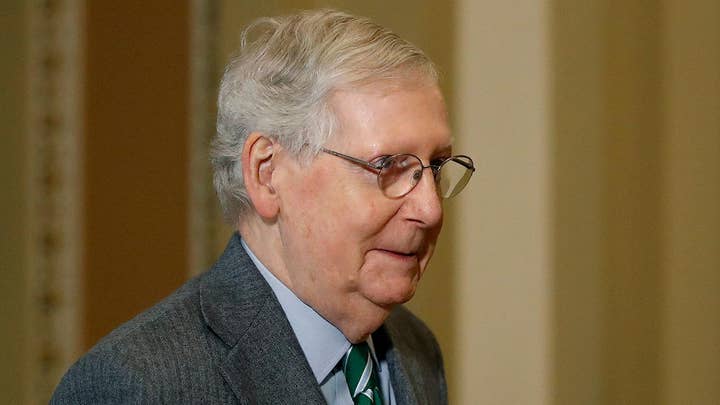Fox News Flash top headlines for Jan. 21
Fox News Flash top headlines for Jan. 21 are here. Check out what's clicking on Foxnews.com
Chief Justice John Roberts has his hands full Tuesday, with the Supreme Court hearing oral arguments in two cases in the morning, before he heads over to the Senate to preside over President Trump's impeachment trial in the afternoon.
First on the Chief Justice's docket was Shular v. United States, which the court heard in the morning. It is the latest case to challenge how the Armed Career Criminal Act determines sentencing based not on a defendant's actions, but on the elements of the crime for which he was convicted.
In Eddie Lee Shular's case, he faced a mandatory sentence of 15 years to life because a prior crime was deemed to be a "serious drug offense," which Congress defined as including possession with intent to manufacture or distribute. Shular was convicted under Florida state law, which did not take intent into account.
An hour later, oral arguments were scheduled for GE Energy Power Conversion France v. Outokumpu Stainless USA, which focuses on compelled arbitration under a treaty known as the Convention on the Recognition and Enforcement of Foreign Arbitral Awards.
SENATE TO DEBATE IMPEACHMENT TRIAL RULES: WHAT TO EXPECT
Shortly after he finishes with that case, Roberts will make his way to the Senate, as impeachment trial proceedings are scheduled to begin at approximately 1 p.m.
Roberts' main role in the impeachment trial is to make any rulings on procedure raised by senators, the House impeachment managers or the president's counsel. But while he could decide on evidentiary questions or objections, the chief could choose to have senators instead vote on those matters. Or the lawmakers could override any Roberts rulings with a majority vote.
A key issue that is expected to come up during the trial is whether to allow witnesses to be called after each side presents arguments on the Senate floor.
CLICK HERE TO GET THE FOX NEWS APP
The chief's main power may be in breaking any tie votes. Chief Justice Salmon P. Chase made two such votes during the impeachment trial of President Andrew Johnson.
Any questions the senators have would also be read aloud by Roberts, as the senators are not allowed to speak while the trial is in session.
Fox News' Bill Mears contributed to this report.















































